Leading or Managing? What does it mean in the Localization industry?
August is a good month to slow down, in my case, take vacations, and gather strength to face the last quarter of the year.
Summer offers a fantastic chance to slow down, recharge batteries, and rediscover what truly matters. It's not about abandoning our work or responsibilities but rather taking a step back, changing gears, and creating space for moments that can enhance our lives.
I love summer because it allows me to be outdoors more, especially with the kids. With summer vacations, it's a perfect opportunity to spend time with them. They grow up so fast, and when I think about it, we won't have more than about 18 summers maybe even less!where they'll want to be with us. After that, they'll go on vacation with their friends to an Airbnb, and I'm sure I'll miss those walks on the beach with my kids, enjoying an ice cream or a Nutella crepe. 😊🍦🏖️
Summer also provides an opportunity to learn and grow. Slowing down a bit during the summer, with its more relaxed pace, offers a chance to invest time in personal growth. This summer, I've read several books and revisited some that I liked a lot in the past, returning to them from time to time to review their ideas. One such book is "What Leaders Really Do" by John P. Kotter
John is a Harvard Business School professor, regularly writing about change management, strategy, and leadership. I liked the essay I read about "What Leaders Really Do."
Why do I like it?
He explained that leadership is not innate; it's not something you either have or don't have (which, btw that’s very encouraging for all of us! He discussed the difference between leadership and management, and one sentence resonated with me:
"Nor is leadership necessarily better than management or a replacement for it. Rather, leadership and management are two distinctive and complementary systems of action. Each has its own function and characteristic activities. Both are necessary for success in an increasingly complex and volatile business environment."
Amen to that!
In the Globalization/Localization industry, I've often seen a lack of balance.
There's often too much focus on management and too little on leadership, or there's a lot of vision but little execution.
In the end, it becomes more of a wish list, castles in the air! When there's too much management without leadership, we may not be prepared to face the changing world we're experiencing today.
One day, a company can be a leader in the market, and 10 years later, it can become irrelevant (think Nokia, Palm, Kodak...).
Let's explore now in detail in this post how management is different from leadership in the localization industry and how we can make them coexist.
Globalization Management activities vs. Leadership activities
Major changes are more and more necessary to survive and compete effectively in this new environment.
More change always demands more leadership.
Planning / Management vs. Setting direction
Let's take an example like cost management. When working on localization projects, cost is obviously important. Now, what are the activities related to cost management from a localization perspective compared to cost leadership?
Cost management involves:
Checking that the Purchase Orders (POs) sent by our linguistic providers are correct.
Ensuring the word rates are correct.
Verifying the word count is accurate.
Confirming the Project management fee is correct. Basically, it's all about bringing predictability and order to the complex world of cost management
Now, what might be the complementary activity of Cost Leadership?
Cost Leadership will involve activities related to:
Setting the direction for our cost strategy.
Finding answers to questions such as, what kind of cost structure do I want for my globalization/Localization department?
Deciding on the strategy, like Outsourcing or an In-house team.
If it's outsourcing, determine if we want to work with several LSPs or a bigger LSP to achieve cost savings.
All these questions are related to Leadership, where we aim to produce change.
Setting the direction of that change is crucial; that's why Localization leadership is essential to work.
Organizing / Staffing vs. Aligning people
Organizing people is different from aligning people.
Organizing/staffing people is a localization management activity, while aligning people is a leadership task. For example:
Identifying the activities needed for a Localization QA pass.
Grouping these activities based on the skills required.
Establishing the sequence for completing these activities.
Assigning localization specialists to each activity.
What we are doing here is finding the right fit between people and tasks, and these activities fall under Management.
Now, what's the equivalent activity to Leadership in this Localization example?
We need to look at the big picture. Quality is complex and involves interrelated parts.
Localization QA leadership tasks include:
Managing content.
Deciding which content to audit.
Defining quality standards for satisfaction.
Determining which metrics to track.
Planning how to publish KPIs.
These tasks are about establishing a vision; it's not about matching processes with people, as in localization management. Here, the goal is to align people with a vision (localization leadership). That's why effective communication is key. We must communicate our vision for handling the linguistic quality program to various stakeholders, including our internal team, language partners, and other stakeholders. Leadership is about convincing different people that a different future is possible.
Solve problems / Provide control vs. Provide motivation
I remember when I was little, we visited a cookie factory with my schoolmates. It was a dream come true, like Charlie in the Chocolate Factory! Seeing those huge machines producing cookies was fascinating.
I recall there was a machine that split cherries in two, and an operator placed them in the cookies. Their mission was to cut the cherry as symmetrically as possible. In a factory, this is what management and quality mean; we need control mechanisms. We must compare results with the plan and take action when deviations are detected. The goal is to minimize errors.
As Kotter put it,
"The purpose of systems and structures is to help normal people complete routine jobs successfully, day after day. It's not exciting or glamorous. But that's management."
This is probably how the "cherry cookie guy" feels.
Leadership differs when working with knowledge workers. It involves:
Articulating a vision and explaining how it impacts the team, hopefully for the better.
Motivating and caring for the team, fostering rapport and empathy.
Being available to help during challenges, offering coaching and feedback.
Supporting team growth and providing rewards when necessary.
Creating the right environment for knowledge workers to generate ideas.
When this is done, the task becomes intrinsically motivating.
Time to end this post! I’m planning now a ride bike with my kids, now that the days are still long with many hours of daylight ….
. I hope this post has helped you better understand management and leadership differences.
The myth that leadership skills are innate is just that - a myth. The myth that we must choose between being a manager or a leader is another myth. In our current knowledge era, management and leadership are important. Both skills need to coexist within us.
The challenge is to combine and use them balanced and efficiently.
Have a great and happy week of management and leadership! 🙂
@yolocalizo"

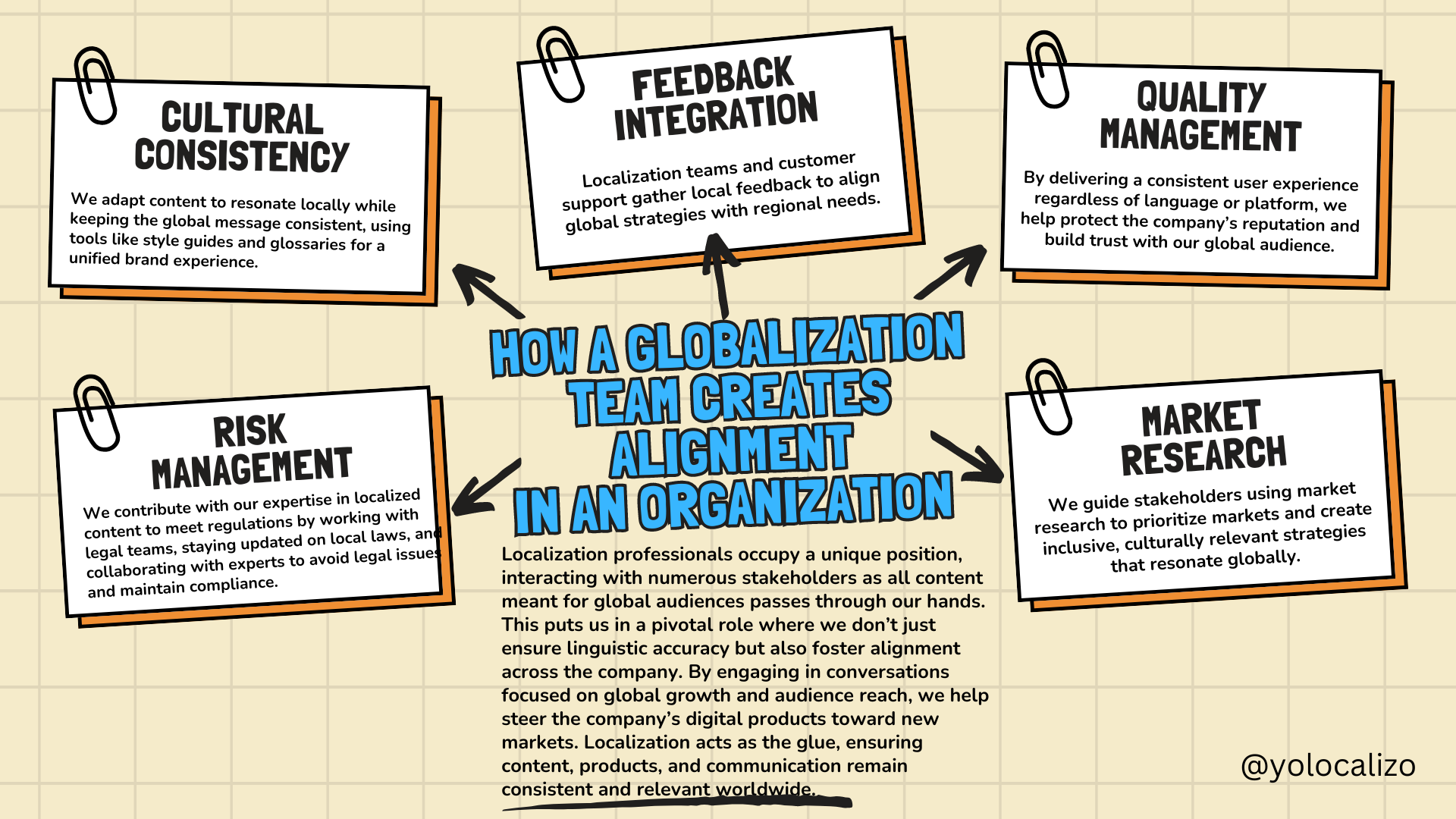
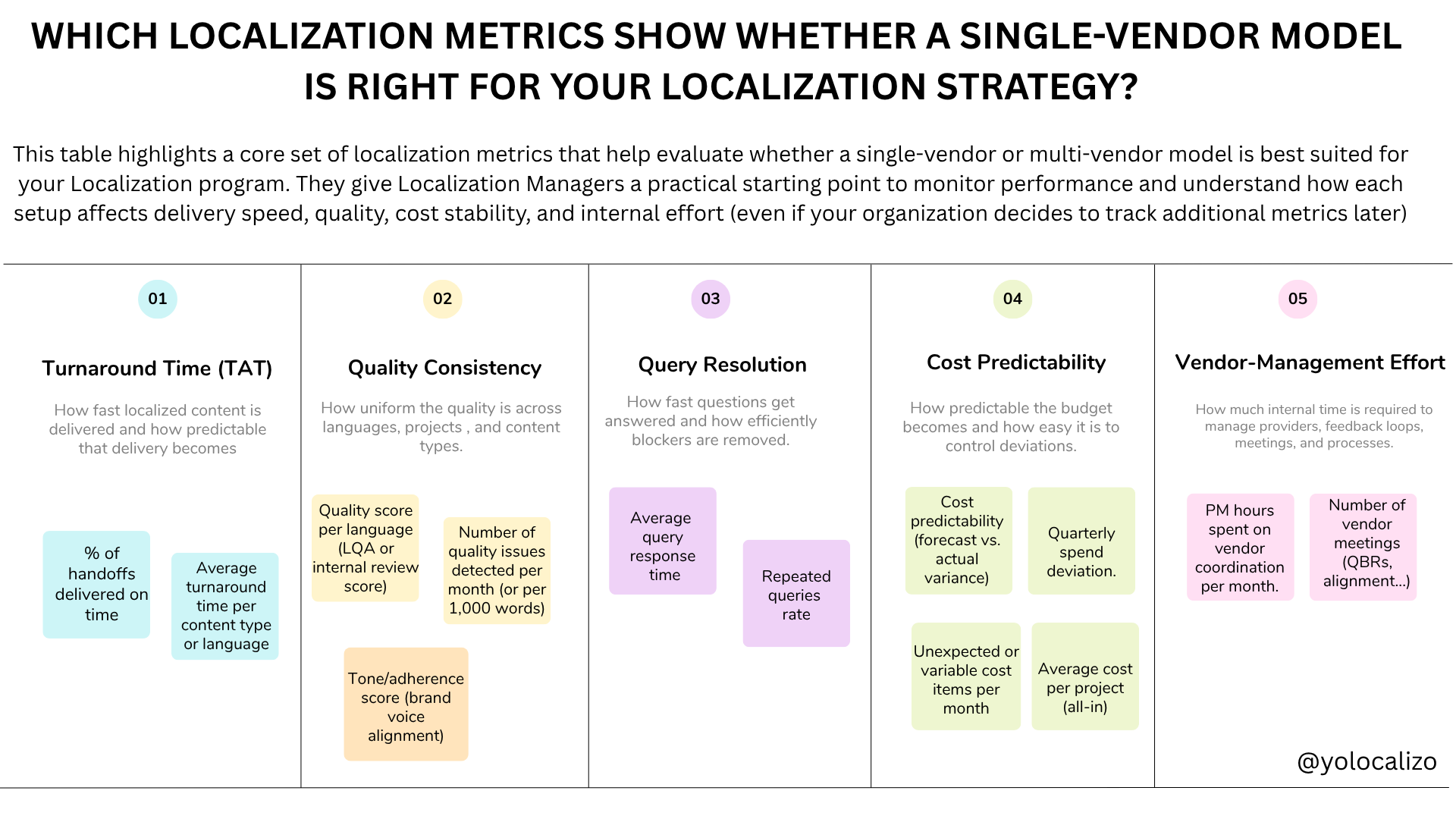




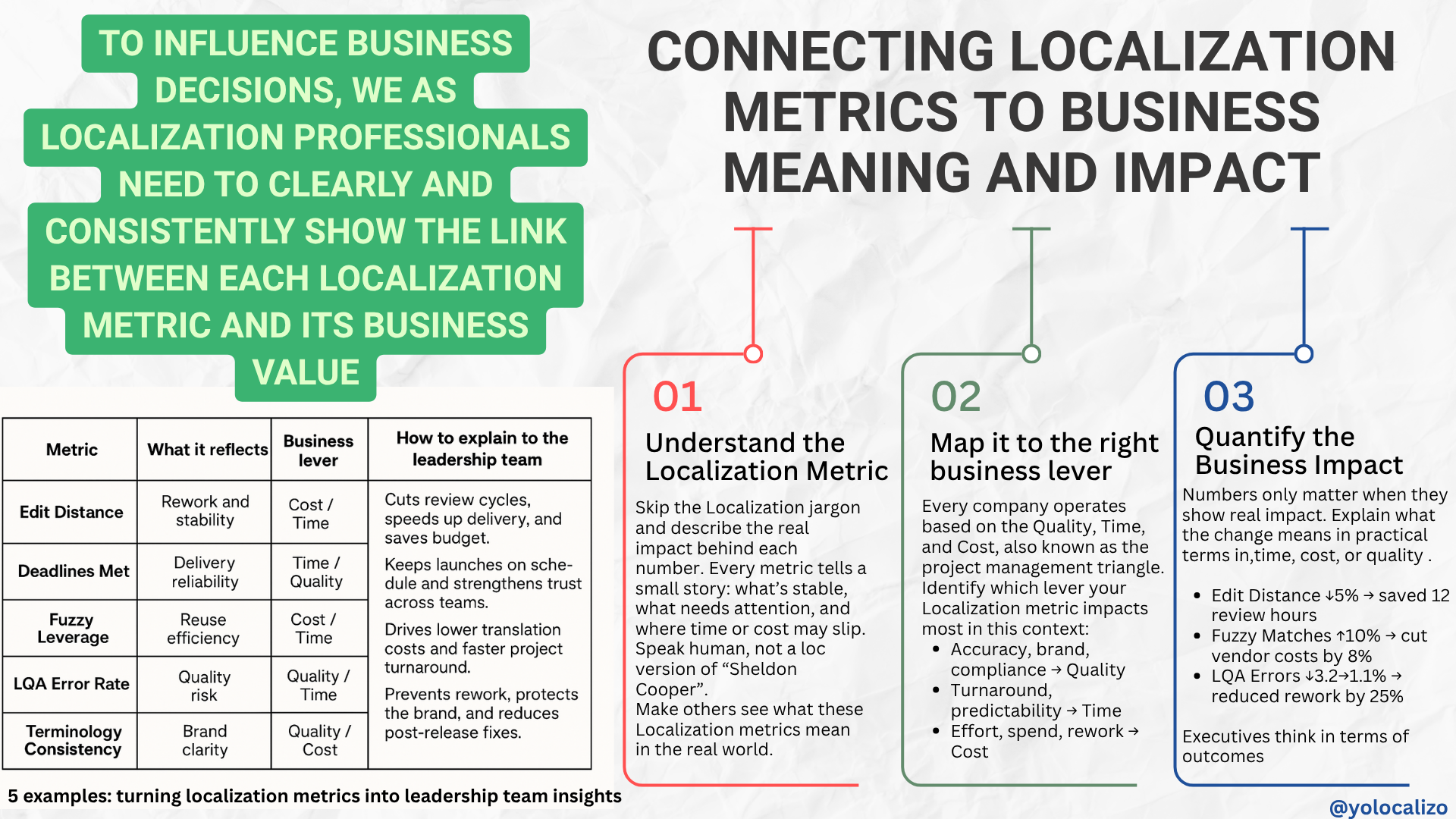








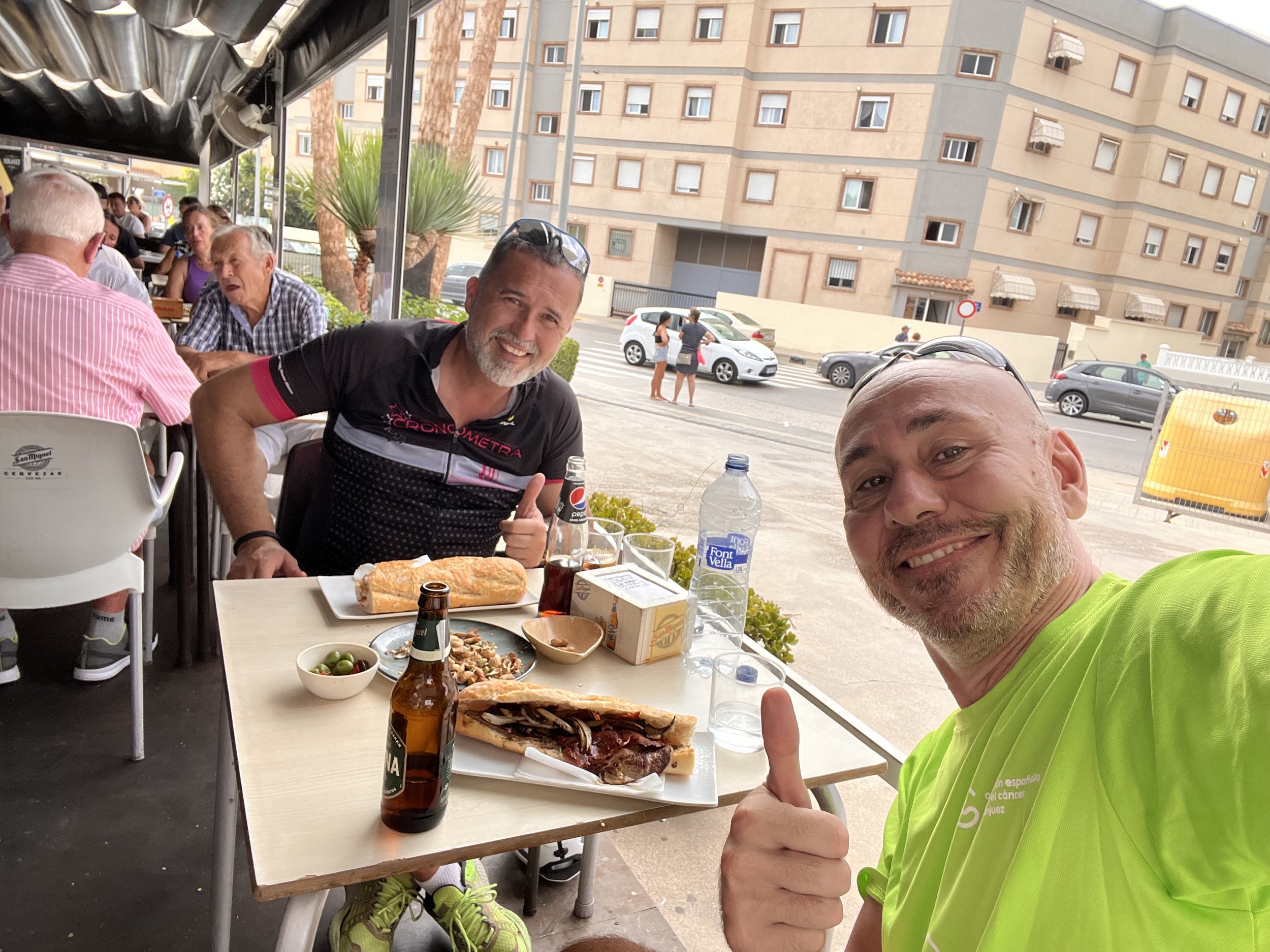





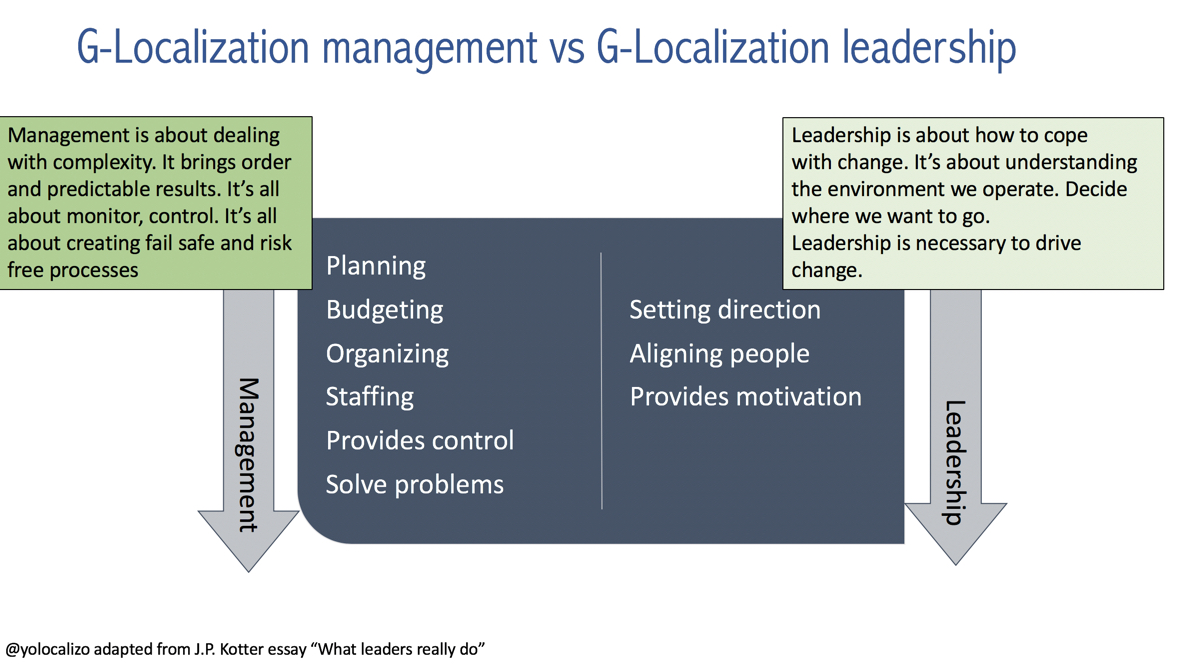


This feels like a pivotal moment. Localization teams are being asked to support more markets, move faster, use AI responsibly, and show impact, not just output. Expectations are higher than ever, but many teams are still trained mainly for execution. We are strong at delivering localization work, yet we often struggle to move from output to outcome and to clearly explain the impact of what we do.